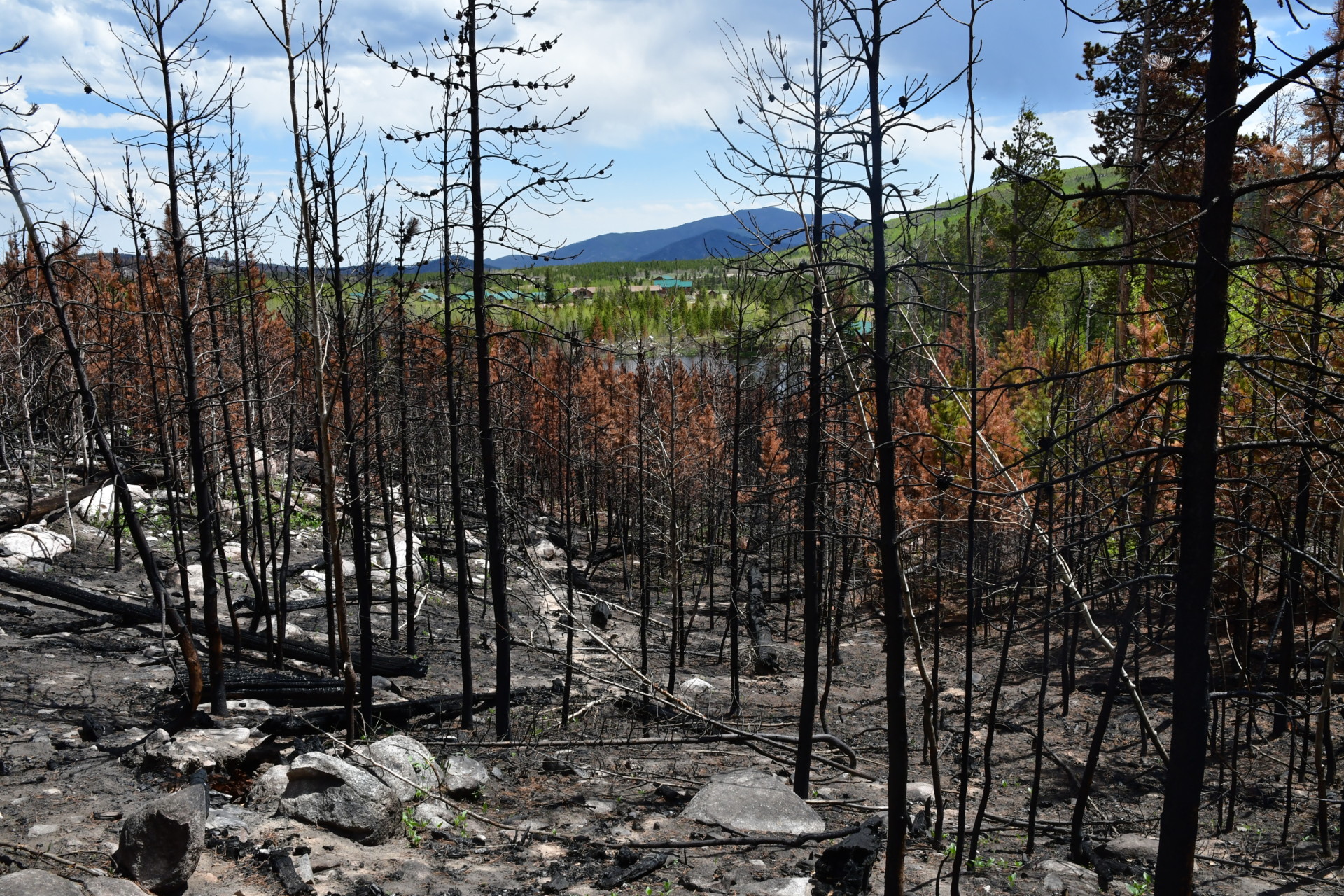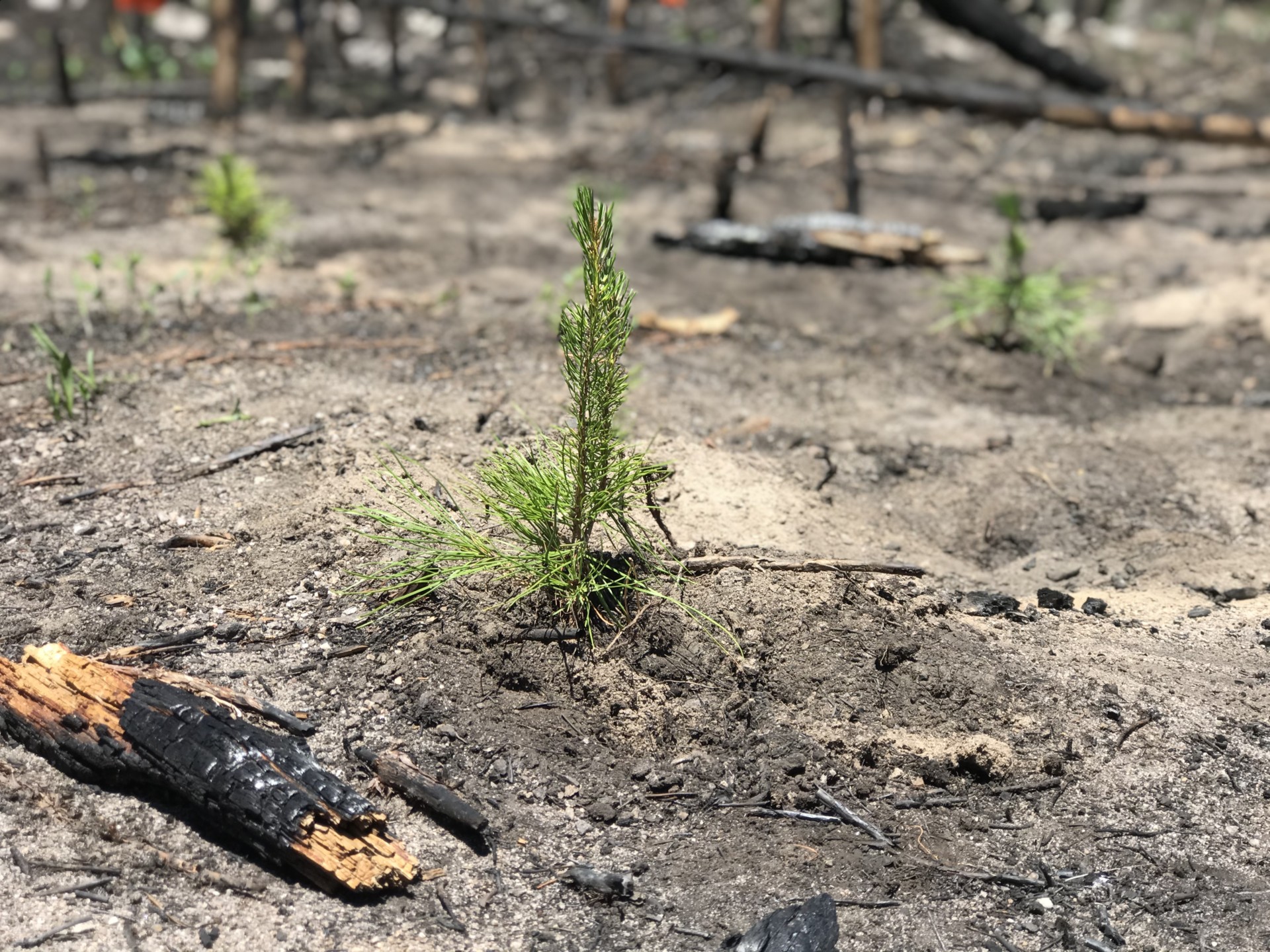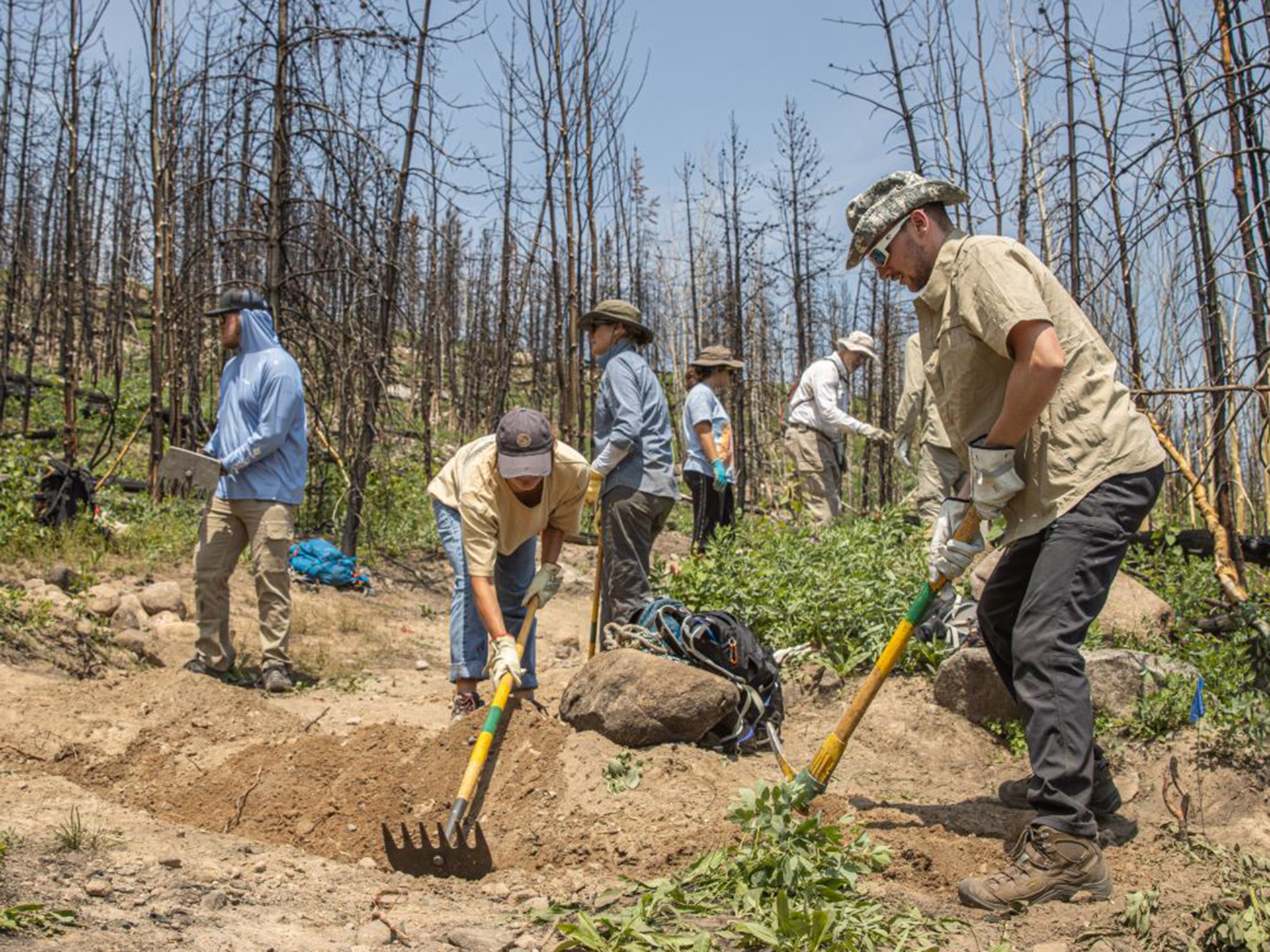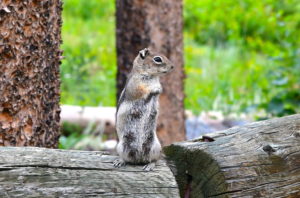
Many different types of research happen at the Mountain Campus. Pictured here is a portion of the campus where Associate Professor Lise Aubry conducts research on ground squirrels. Photo: Lise Aubry/CSU
July 1 marked the reopening of the Colorado State University Mountain Campus after being closed since October 2019 due to the COVID-19 pandemic. Mountain Campus facilities, research and academic classes are set to return to regular operation in the fall.
In the weeks since the reopening, the campus – typically open each year from mid-May to mid-October – has seen its full-time staff return as well as faculty, students and visitors. Construction on a new wastewater plant and the Donald and Esther Harbison Experiential Learning Center have continued since April 2021.
“We haven’t worked at the Mountain Campus from a total operations perspective in 20 months,” said Seth Webb, Mountain Campus director. “It’s a pretty significant moment for us to be up here welcoming faculty, staff, students and alumni back.”
In the midst of the closure, the Cameron Peak Fire passed through the campus on Oct. 9-10, 2020, burning nearly 620 acres, one-third of the campus grounds. The flames avoided campus structures, thanks to successful efforts to mitigate the fire.
“Reflecting back on everything that was done last year to protect the Mountain Campus, had things gone differently, we might not have been able to open this season, so there’s an extra level of appreciation and gratitude,” Webb said.
With the reopening, the 74 campus structures spared from the flames, including the ropes course, conference center and homestead, are now fully operational, a feat made possible by “phenomenal” students and staff, said Mari Strombom, executive director of Housing & Dining Services.
“There’s a lot of work that needed to be done from the campus sitting unused for a year, so that’s been our focus first,” Strombom said. “We’re really grateful that we don’t have to figure out how to rebuild.”
Strombom said she sees this moment as “an opportunity to continue looking at how to make changes and improve things. There is excitement in the air.”


Seedlings planted on the Mountain Campus, CSU students working on forest restoration. Photos: Travis Croft, Dept. of Forest & Rangeland Stewardship
Research on the campus
While some researchers worked on the campus during the pandemic with permission from the university, the fire halted their efforts. The reopening will allow researchers to return, including population ecologist Lise Aubry, an associate professor in the Department of Fish, Wildlife and Conservation Biology in the Warner College of Natural Resources.
Aubry studies hibernators’ response to climate change, specifically the Golden-mantled Ground squirrel and Wyoming Ground squirrel species found at different elevations around campus. She uses an elevation gradient to compare differences in immunocompetence, growth, reproduction and survival across the two squirrel species, which tend to adopt different hibernation strategies.

The burn scar opens new opportunities for research, Aubry said. She and her CSU Extension intern Ryan Black will now be looking at how the fire impacted the Wyoming Ground squirrel, as the fire touched the species’ habitat. They’ll address whether the fire may force these animals to forage more post-fire, to compensate for a lack of food within their home range.”
“If they’re closer to the edge of the fire and resources around them are impacted, how does that change their survival chances?” Aubry said.
Students can expect some Mountain Campus classes to resume after being held online since spring semester 2020. Because those online courses lacked the campus experience, Paul Doherty, the Mountain Campus academic coordinator, set out to recreate that experience for students this summer.
“Our majors have said Mountain Campus experiences are key to earning their major,” Doherty said. “There’s a sense of community tied to the campus that some students missed out on, and then with the fire there was a fear of losing the campus and community altogether.”
Doherty and his team developed the Mountain Campus Service Learning and Action Week, a fire restoration retreat held July 19-23. Twenty students elected to join as well as volunteers to work with CSU faculty, the Coalition for the Poudre River Watershed, Wildlands Restoration Volunteers and the U.S. Forest Service. The week will provide lessons on recovering from a wildfire, Doherty said.
Attendees will rebuild trails, restore natural springs, and repair grazing exclosures – which keep out unwanted animals – that the U.S. Forest Service uses to monitor the effects of grazing leases.
“Fire is such a huge issue across the West and will be into the future, so we now have what I call a nice living laboratory to learn from,” Doherty said. “Thank goodness the buildings didn’t burn, so we still have a place to do this important work.”